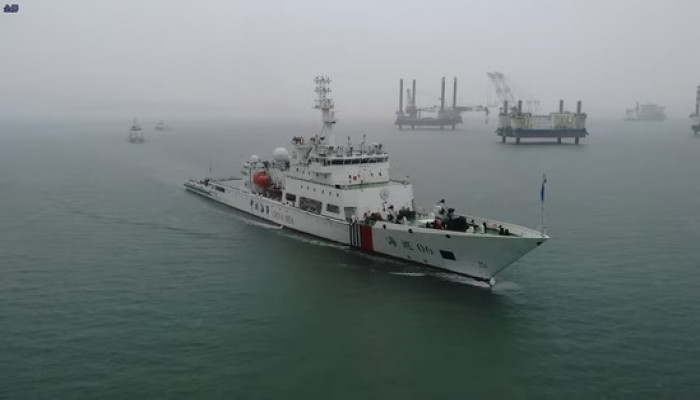China is ignoring US requests for open lines of communication, says Pentagon official
- In Reports
- 11:36 AM, May 26, 2023
- Myind Staff
Ely Ratner, the assistant secretary for Indo-Pacific security affairs at the Department of Defence (DOD), said on Thursday that Beijing is either rejecting or not responding to American requests. The United States is keen to maintain open lines of communication with China in the military domain to avoid misunderstandings both during peacetime and crises.
Ratner stated, "The American strategy in the Indo-Pacific is one of deterrence, aimed at making the costs of conflict in Taiwan straits too high for China while ensuring that activities aimed at deterrence do not lead to escalation and are in line with the needs and preferences of allies and partners." Ratner was speaking at a think tank event in Washington. This tactic is what led the US to feel that a conflict across the Taiwan Straits was "neither inevitable nor imminent" since the costs to Beijing at the time were too great to bear. “And our job is to keep it that way,” Ratner said.
The US government has frequently affirmed its desire for open lines of communication with China. Presidents Joe Biden and Xi Jinping of China agreed to do so during their meeting in Bali, and they also disclosed that Secretary of State Antony J. Blinken would be traveling to Beijing.
But only a few days before Blinken was scheduled to fly to China in February, the US made the shocking discovery of a Chinese spy balloon over American territory, sparking indignation and forcing the postponement of the trip.
The likelihood of further high-level US-China dialogue has been revived following NSA Jake Sullivan's meeting with Wang Yi, a top member of the Chinese Communist Party's foreign policy, in Vienna in recent weeks. But this hasn't yet been implemented in the military domain.
Ratner said that Lloyd Austin, secretary of defense, had emphasized the importance of these lines of communication. “But unfortunately, we have had a lot of difficulties when we have proposed phone calls, meetings, and dialogues.”
He claimed that no matter who was involved—Secretary Austin, Mike Milley, the chairman of the joint chiefs of staff, Admiral John C. Aquilino, the commander of the Indo-Pacific Command (INDOPACOM), Michael Chase, the deputy assistant secretary of defense for China—American requests were either denied or went unanswered. The US and DOD have extended an open hand on the issue of military-to-military engagement, but we still lack allies who are regularly eager to cooperate.
Ratner said that lines of communication were important both during peacetime and during a crisis “to prevent misperception and miscalculation and to prevent crises from spinning out of control”. The aim of these mechanisms was to discuss how both sides thought about “emerging domains” and how they were conceiving their strategy in domains “which may have high escalatory potential”.
Responding to a question on the situation in the Taiwan Straits, Ratner first said that American policy had not changed. “We have maintained our consistent behavior under the Taiwan Relations Act, one China policy. We have a clear objective to maintain the status quo in the Taiwan Strait. We do not support Taiwan’s independence. I repeat: We don’t support Taiwan’s independence. It is a talking point for critics of ours but it is not true. We want to maintain the status quo.”
However, Ratner noted that the same Act also contained a US obligation to maintain America's capacity to fend off coercive measures while also providing Taiwan with defensive weapons for self-defense. We continue to do this by adjusting our military posture, coming up with fresh ideas, introducing new tools, and cooperating with partners and allies. We are confident in our current position because deterrence is effective and powerful.
The ability of the US to maintain balance in its policy in two ways, according to Ratner, will be a major indicator of the effectiveness of the deterrence strategy.
The first dealt with partners and allies. “How do we make those sustainable where PRC remains a geographic, economic, political, historical, and cultural reality for every country in the region? We are not asking partners to choose between US and China. We meet them where they are in terms of their security concerns, be it sovereignty or energy. We are focused on supporting their priorities of modernization and believe that benefits us through stability in the region.”
The second test, according to Ratner, was to increase deterrence while avoiding deterrence-related activities that might trigger a crisis or escalation. We place a lot of emphasis on getting the machinery on it right so that it offers stabilizing deterrent value.
Image source: Reuters







Comments